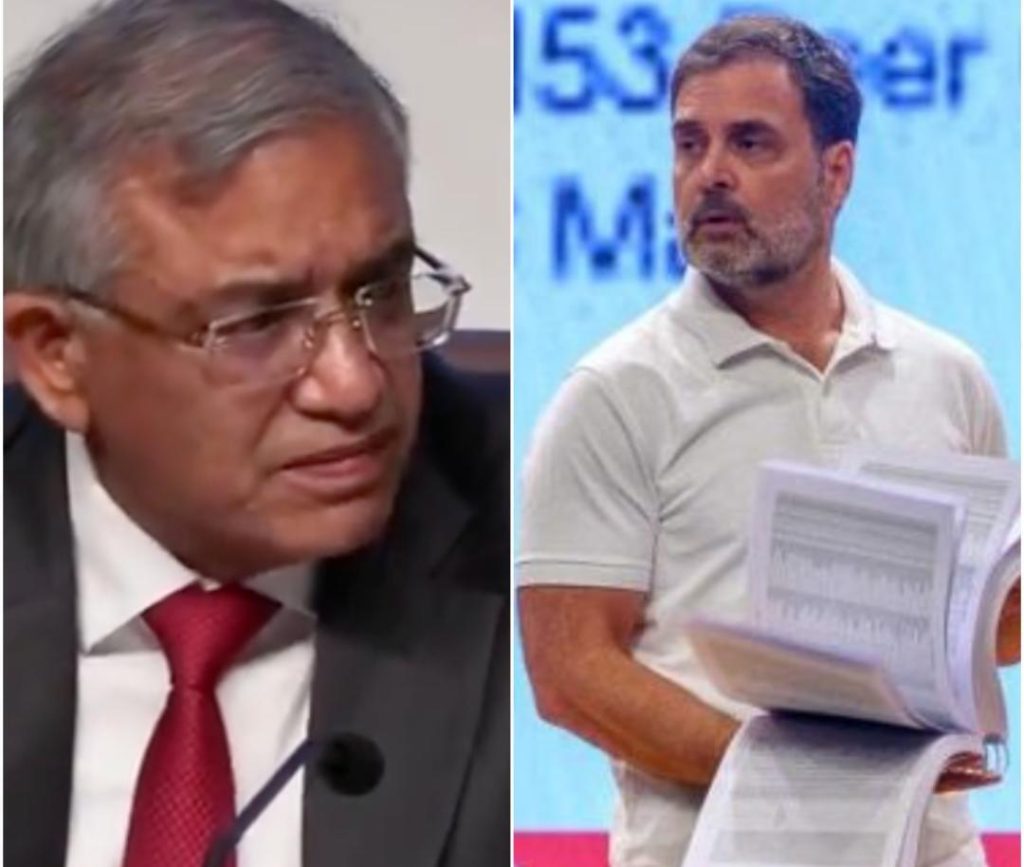
Vote Chori’ Phrase an Insult; Should We Share CCTV Footage of Mothers & Sisters Voting?: EC
The ongoing election season in India has witnessed a heated debate on the issue of voter fraud and rigging. In a recent development, Chief Election Commissioner (CEC) Gyanesh Kumar has taken a strong stance against the use of the phrase “vote chori” (voter fraud) by Congress leader Rahul Gandhi. The CEC has termed the term an insult to the Constitution and has also raised concerns over the demand for releasing surveillance footage from polling booths.
The controversy began when Rahul Gandhi used the phrase “vote chori” to claim that elections are rigged. The CEC, while criticizing the term, asked a pertinent question: “Should the Election Commission share the CCTV videos of any voter, including their mothers, daughters-in-law?” This question highlights the concerns over voter privacy and the potential misuse of surveillance footage.
The CEC’s statement comes at a time when there are demands from various quarters to release the CCTV footage from polling booths to ensure transparency and prevent voter fraud. However, the CEC has emphasized that releasing such footage would breach the privacy of voters, many of whom are women.
The use of the phrase “vote chori” has been widely criticized by many, including the Election Commission. The term is not only misleading but also demeans the democratic process. It is essential to remember that voting is a fundamental right in a democracy, and any attempt to undermine this right is unacceptable.
The CEC’s stance on the issue is well-founded. Releasing CCTV footage of voters, including women, would be a violation of their privacy and could lead to unintended consequences. In a country where women’s safety and dignity are already compromised, sharing such footage could have serious implications.
Moreover, the CEC’s concerns over the misuse of surveillance footage are valid. In a country where political rivalries are often bitter and violent, releasing CCTV footage of voters could be used to intimidate or harass them. This could lead to a significant decline in voter turnout, undermining the very fabric of democracy.
Rahul Gandhi’s use of the phrase “vote chori” has also been criticized for its inflammatory nature. The term is not only an insult to the democratic process but also an attempt to undermine the credibility of the Election Commission. The CEC’s response has been measured and appropriate, and it is essential that political leaders refrain from using such language.
The controversy surrounding the “vote chori” phrase has also highlighted the need for greater awareness about the democratic process. Many voters, particularly in rural areas, are unaware of their rights and responsibilities. It is essential that political parties and civil society organizations work together to educate voters about the democratic process and the importance of exercising their franchise.
In conclusion, the CEC’s stance on the “vote chori” phrase and the demand for releasing CCTV footage of voters is well-founded. The use of such language is an insult to the Constitution and the democratic process, and it is essential that political leaders refrain from using it. The CEC’s concerns over voter privacy and the potential misuse of surveillance footage are valid, and it is essential that we prioritize the safety and dignity of voters, particularly women.






